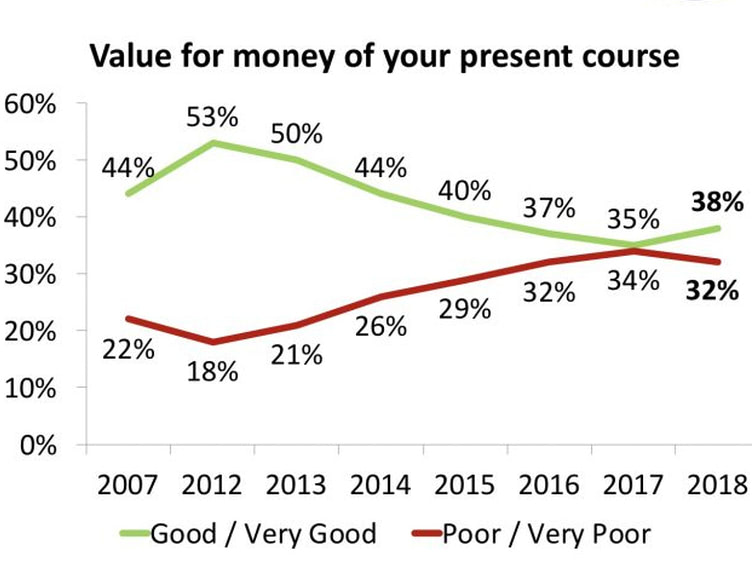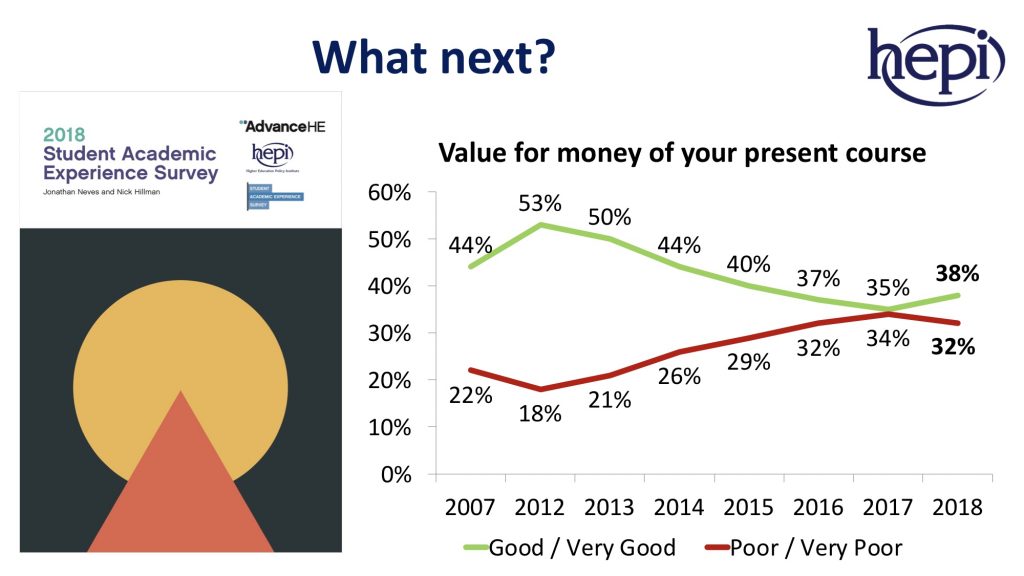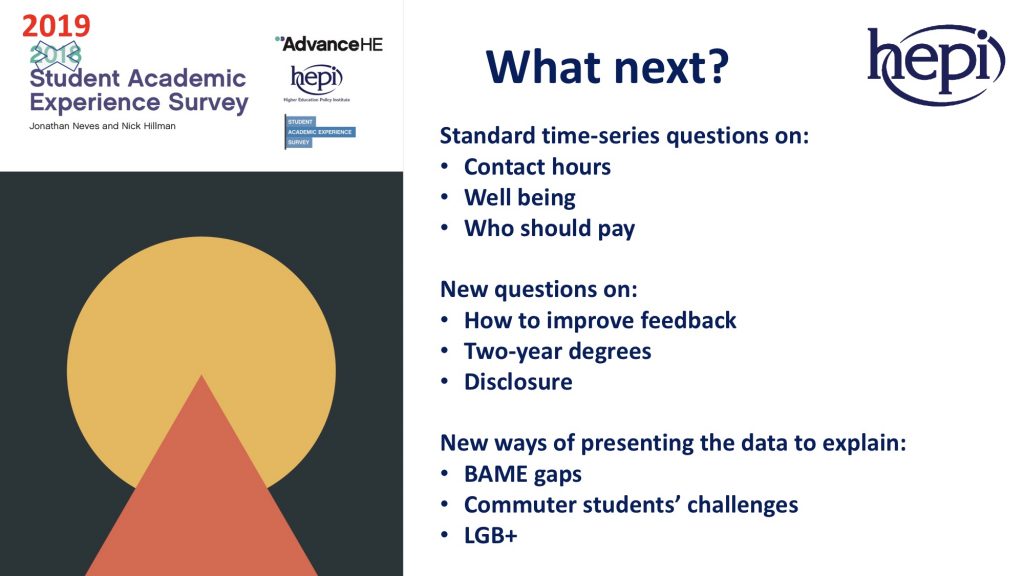What is University For? Value for money is improving, says new survey

Each year, HEPI and Advance HE publish the Student Academic Experience Survey. It was originally designed to track alterations in the student experience as student finance changes.
The Survey started in 2006, in the months before £3,000 fees came in, and has continued through the various financial changes since, including the big fee rises in England and, more recently, Wales.
Over the years, it has become the go-to place for data on contact hours, student well-being and perceptions of teaching quality.
The time series is now rich enough that it can be used to help answer long-standing questions, as in our 2018 report How different is Oxbridge?
The one question that usually earns the most interest from the media is on value-for-money.
Back in 2017, Nick Hillman predicted that the proportion of full-time undergraduates who think they are getting ‘poor’ or ‘very poor’ value for money was about to overtake the proportion who think they are getting ‘good’ or ‘very good’ value for money.
This was wrong. When the 2018 data came in, the downward trend was reversed.
This year, we will get an indication as to whether it was a blip or the start of a new trend.

Each year, HEPI also introduce some new questions to keep the Survey fresh and related to the latest policy debates, and also cut the data in new ways to build up a more complex picture on sub-groups of students.
The slide below was presented at the recent HEPI Policy Briefing Day showing some hints on their plans for this year:

The launch of this year’s HEPI / Advance HE Survey will be one of the highlights of the next HEPI Annual Conference, which is taking place in central London on Thursday, 13thJune 2019, with the kind support of UPP and Times Higher Education.
The day has the title: ‘What is University For? Future-proofing the sector in the age of risk and regulation’ and among the highlights are speeches from the Minister for Universities, Chris Skidmore, and Nicola Dandridge, the Chief Executive of the Office for Students.











Responses